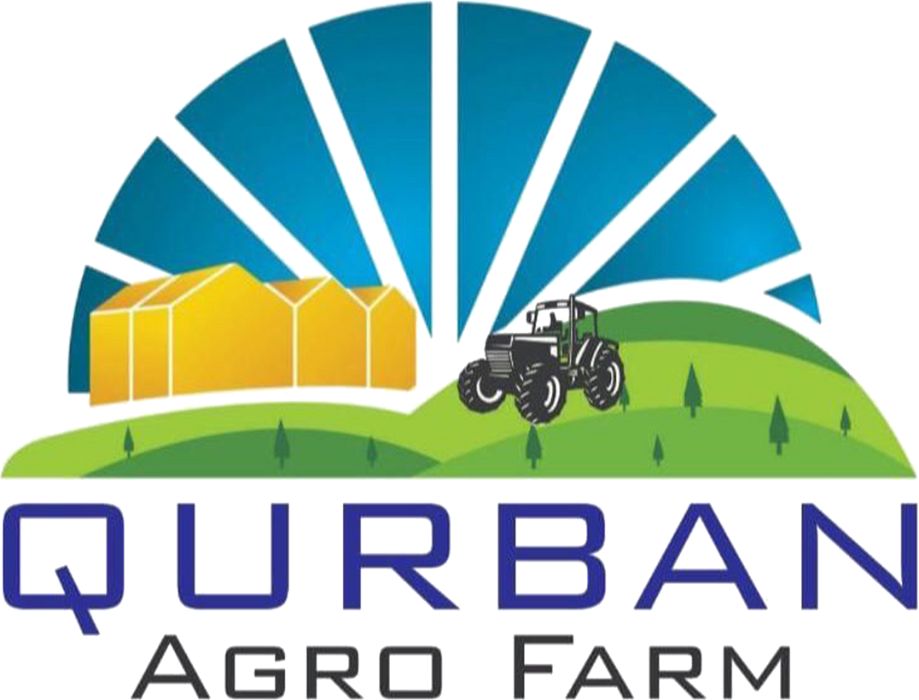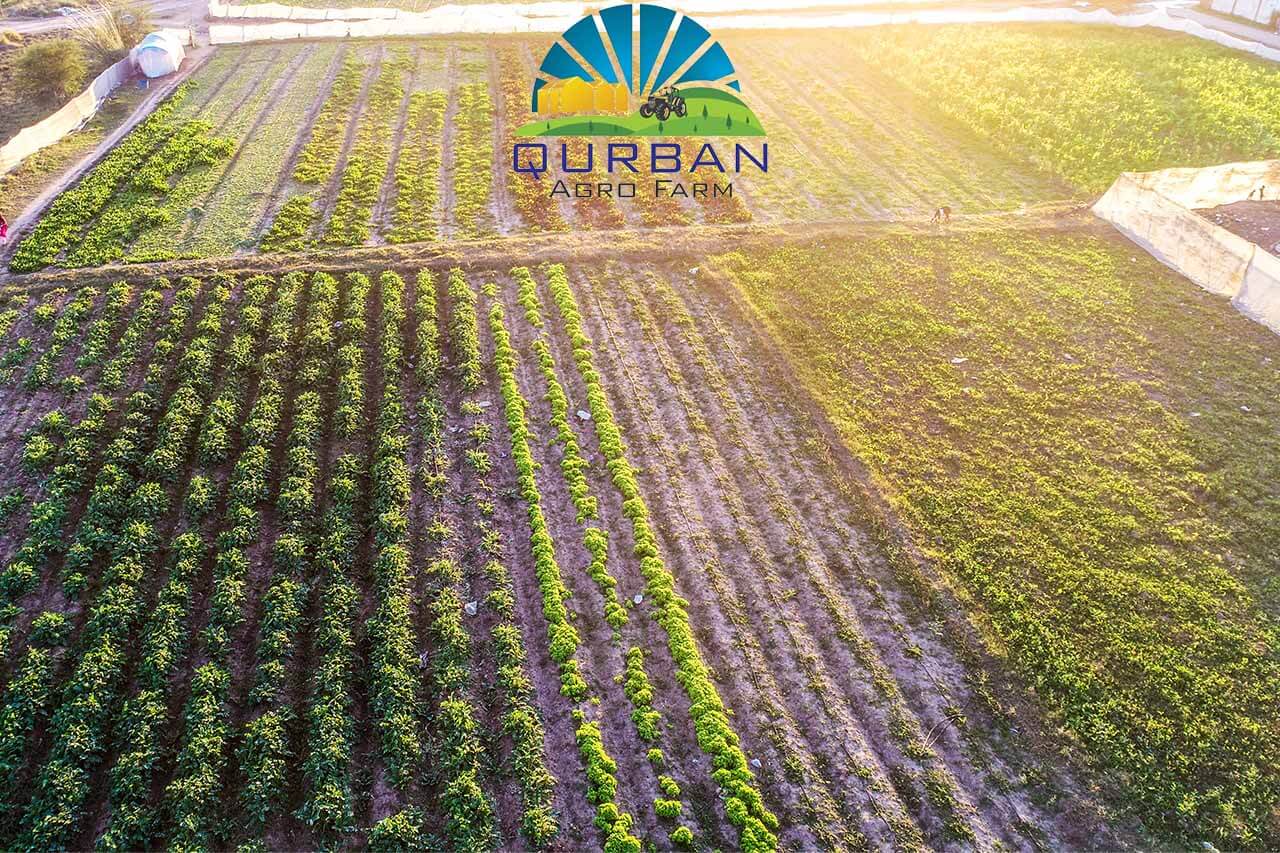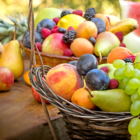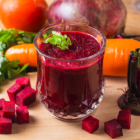Organic farming has evolved since people have realized that being close to nature is the best way to lead a healthy life. It is a traditional and modest way of farming that avoids harmful chemicals.
Qurban Agro Farms are proud to be the pioneers of organic farming in Pakistan!
Exploring What is Organic farming:
Organic farming is a sustainable agricultural practice that emphasizes growing crops and raising livestock in harmony with nature. This eco-friendly approach avoids the use of synthetic chemicals, such as pesticides, fertilizers, and genetically modified organisms (GMOs). Instead, it relies on natural methods to improve soil health, enhance biodiversity, and produce nutritious food.
What is Farming?
Farming can range greatly in scale, from small family farms to massive commercial operations.
Key components of farming consist of:
Crop Cultivation:
This entails planting, nurturing, and harvesting vegetation which includes grains, culmination, veggies, and legumes. Different farming techniques, inclusive of traditional, organic, and cutting-edge techniques, may be hired primarily based on factors like weather, soil kind, and to-be-had assets.
Livestock Rearing:
Farmers boost animals like cattle, roosters, pigs, sheep, and goats for meat, dairy products, eggs, wool, and others by means of merchandise. Livestock farming requires proper care, feeding, housing, and health management to ensure the proper well-being of the animals and the quality of the goods.
Soil Management:
Maintaining soil fertility and fitness is critical for successful farming. Techniques inclusive of crop rotation, cover cropping, composting, and soil conservation help prevent erosion, preserve moisture, and top off nutrients, ensuring sustainable agricultural practices.
Water Management:
Efficient use of water resources is crucial for farming, mainly in regions susceptible to drought or water shortage. Farmers employ irrigation systems, water-saving technology, and conservation practices to optimize water usage and minimize environmental impact.
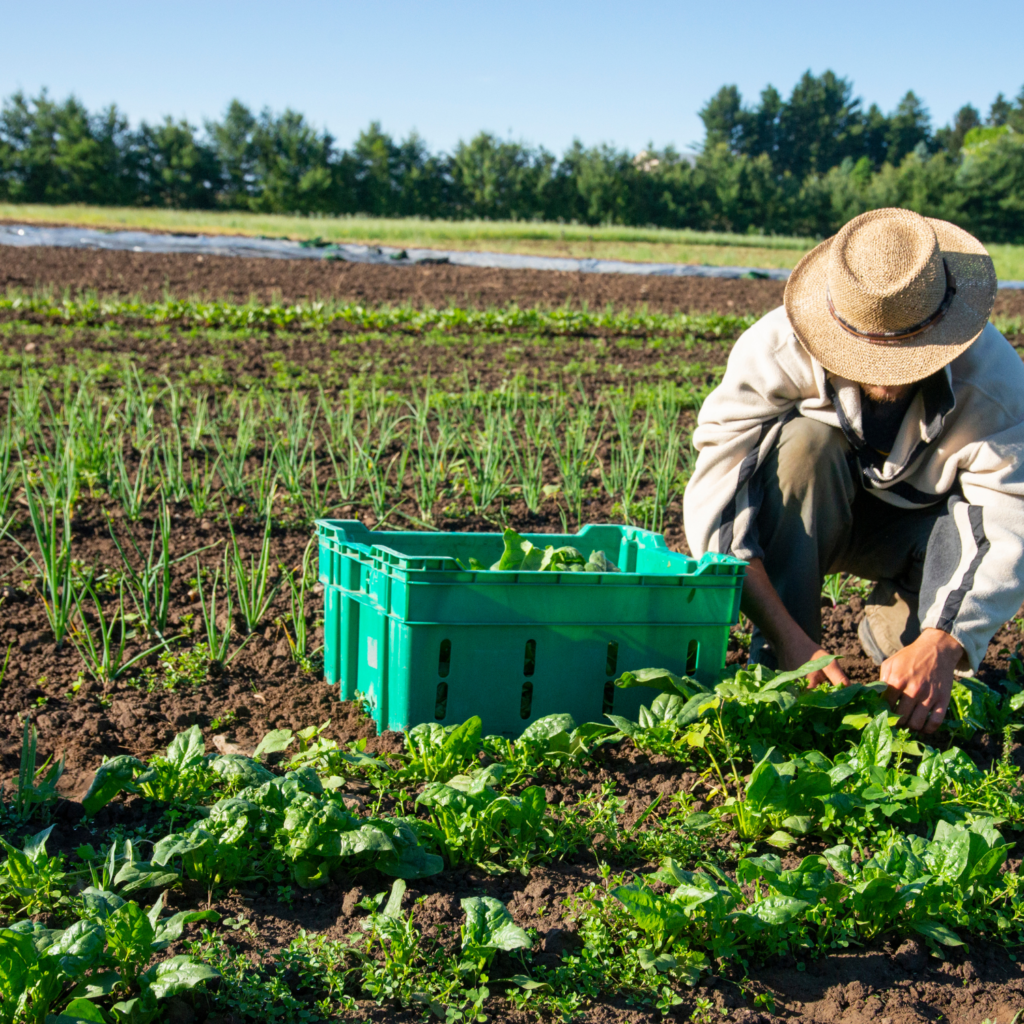
Pest and Disease Control:
Protecting plants and cattle from pests, sicknesses, and weeds is crucial for maximizing yields and ensuring meal safety. Integrated pest control (IPM) techniques, biological management techniques, and the usage of pesticides and herbicides are common approaches to managing agricultural pests and diseases.
Technology Adoption:
Modern farming increasingly more is predicated on generation and innovation to improve efficiency, productiveness, and sustainability. Tools consisting of tractors, harvesters, precision agriculture systems, drones, and genetic engineering techniques play vital roles in modern-day agricultural practices.
Market Access:
Farmers want access to markets to promote their merchandise and generate profits. Market studies, fee-introduced processing, direct advertising and marketing channels (which include farmers’ markets and network-supported agriculture), and get right of entry to to truthful change and organic certifications can assist farmers reach purchasers and attaining truthful charges for his or her goods.
Overall, farming is a multifaceted endeavor that entails a mixture of medical expertise, realistic abilities, and difficult paintings to provide meals and agricultural merchandise for human intake and different uses.
What is organic farming: Exploring Organic Farming in Pakistan
Organic farming is a technique of agriculture that relies on herbal procedures and organic variety to hold soil fertility and manipulate pests and illnesses. Here’s a breakdown of its key characteristics:
No artificial chemical substances:
Organic farmers avoid using synthetic fertilizers, insecticides, herbicides, and genetically changed organisms (GMOs). Instead, they depend upon herbal inputs like compost, manure, and cowl crops to nourish the soil and control pests.
Soil fitness:
Organic farming prioritizes soil fitness through selling practices together with crop rotation, mulching, and the use of natural remember to beautify soil structure, fertility, and microbial pastime. Healthy soil is seen as the foundation of sustainable agriculture.
Biodiversity:
Organic farmers regularly domesticate a various range of vegetation and encourage natural habitats to help beneficial insects, birds, and different natural world. This helps create balanced ecosystems which could higher face up of pests and illnesses.
Animal welfare:
In natural livestock farming, animals are raised in situations that prioritize their well-being, inclusive of access to outside areas, natural feed, and prohibition of antibiotics and boom hormones.
Certification:
To be labeled as natural, farms should adhere to strict requirements set by way of certifying bodies. These standards commonly adjust soil satisfaction, pest and weed management, animal welfare, and the use of inputs.
Overall, natural farming pursues to supply food in an environmentally sustainable way, promotes animal welfare, and prioritizes the health and well-being of both customers and farming communities.
How is organic farming different from natural farming?
Organic farming differs from natural farming in several key ways:
Input use:
Conventional farming relies heavily on artificial inputs together with chemical fertilizers, insecticides, and herbicides to beautify crop yields and manipulate pests. In contrast, organic farming avoids the use of artificial chemical substances and as an alternative emphasizes herbal inputs like compost, manure, and crop rotations to keep soil fertility and control pests.
Soil fitness:
Organic farming prioritizes soil health through practices including crop rotation, cowl cropping, and using organic count. Conventional farming may also depend more on chemical fertilizers, which can degrade soil high-quality over the years and contribute to erosion and nutrient runoff.
Pest and weed control:
Conventional farming frequently relies on chemical pesticides and herbicides to govern pests and weeds. Organic farming, alternatively, makes use of strategies including crop rotation, associate planting, and organic pest control to manipulate pests and weeds without artificial chemical compounds.
Genetic modification:
Conventional farming may involve the usage of genetically changed organisms (GMOs) to decorate crop trends which includes pest resistance or herbicide tolerance. Organic farming prohibits using GMOs and emphasizes the maintenance of genetic range.
Animal welfare:
Organic livestock farming generally affords animals with get right of entry to outdoor areas, and natural feed, and prohibits using antibiotics and boom hormones. Conventional livestock farming may additionally involve confinement operations and the ordinary use of antibiotics and hormones.
Certification:
Organic farming operations should adhere to strict requirements set with the aid of certifying our bodies to be categorized as organic. Conventional farming is not difficult to the identical organic certification requirements.
Overall, organic farming objectives are to supply meals in a way that is environmentally sustainable, promotes soil fitness, and prioritizes animal welfare, whilst traditional farming regularly is based more closely on artificial inputs and may prioritize maximizing yields and performance.
Advantages of Organic Farming:
Organic farming offers several benefits, such as:
– Environmental sustainability:
Organic farming in Pakistan promotes soil health, reduces erosion, and decreases pollution of air, water, and soil by averting the use of artificial chemicals. By prioritizing herbal inputs and biodiversity, natural farming contributes to long-term environmental sustainability.
– Healthier food:
Organic farming normally produces organic foods with lower tiers of pesticide residues and higher nutrient content material. By averting artificial chemicals and emphasizing herbal inputs, natural produce can be more healthy for consumers.
– Biodiversity conservation:
Organic farming encourages the renovation of various ecosystems via selling crop rotation, partner planting, and habitat conservation. These practices assist beneficial insects, birds, and different flora and fauna, contributing to biodiversity conservation.
– Soil fertility:
Organic farming techniques consisting of composting, cover cropping, and minimum tillage help build and keep soil fertility over time. Healthy soils are extra resilient to erosion, drought, and other environmental stressors, main to more sustainable agricultural production.
– Reduced antibiotic resistance:
In organic cattle farming, the prohibition of routine antibiotic use helps lessen the hazard of antibiotic resistance in human beings and animals. By selling animal health through herbal techniques and offering entry to outdoor space, organic farming supports sustainable farm animals management practices.
– Support for rural groups:
Organic farming often involves a smaller-scale, circle of relatives-owned farms and encourages nearby food systems. By assisting neighborhood farmers and reducing reliance on global delivery chains, organic farming can contribute to the economic energy of rural groups.
Overall, organic farming gives a holistic approach to agriculture that prioritizes environmental stewardship, human health, and social duty.
Challenges in Organic Farming:
While organic farming offers numerous advantages, it faces challenges such as lower initial yields, higher labor costs, and the need for extensive knowledge about natural farming techniques. However, growing consumer demand for organic products continues to motivate farmers to adopt these sustainable practices.
Qurban Agro Farms-introducing organic farming in Pakistan!
Qurban Agro Farms is devoted to the concepts of organic farming, prioritizing sustainable agricultural practices and environmental stewardship. Here’s how Qurban Agro Farms practices organic farming:
- Natural inputs: Qurban Agro Farms avoids the use of synthetic chemical compounds including fertilizers, pesticides, and herbicides. Instead, they make use of natural inputs like compost, manure, and organic count to nourish the soil and sell plant increase.
- Soil fitness: The farm prioritizes soil health by using enforcing practices inclusive of crop rotation, cover cropping, and minimal tillage. These strategies beautify soil structure, fertility, and microbial pastime, ensuring long-term productiveness and sustainability.

- Pest and weed management: Qurban Agro Farms employs incorporated pest control (IPM) strategies to manipulate pests and weeds without counting on synthetic chemical compounds. This may additionally include the use of biological controls, crop rotation, and associated planting to decrease pest harm and keep crop health.
- Genetic diversity: The farm values genetic diversity and avoids the use of genetically changed organisms (GMOs). By maintaining natural genetic variants, Qurban Agro Farms supports resilient and adaptable crop sorts.
- Certification: Qurban Agro Farms adheres to stringent organic certification requirements to assure the integrity of its natural merchandise. This certification guarantees that the farm meets the necessities for organic farming practices set forth via certifying bodies.
Through its willpower to natural farming principles, Qurban Agro Farms strives to produce tremendous, nutritious meals in concord with nature whilst selling the health of purchasers and the environment.
Frequently Asked Questions
What is organic farming in Pakistan?
Organic farming in Pakistan is a way of agriculture that emphasizes the usage of herbal inputs and processes, aiming to produce food sustainably and environmentally. This technique avoids artificial chemical substances like insecticides and fertilizers, as a substitute counting on organic fertilizers, compost, inexperienced manure, and organic pest manipulation strategies.
In Pakistan, organic farming is gaining traction as awareness of environmental issues and fitness benefits associated with organic produce will increase. Organic farming is a way of promoting soil health, biodiversity, and conservation of water. Farmers hire techniques consisting of crop rotation, intercropping, and the use of natural predators to manipulate pests and sicknesses.
What is an example of organic farming?
An example of organic farming is a vegetable farm that makes use of compost and manure in preference to artificial fertilizers to enhance the soil. This farm employs crop rotation and intercropping techniques to preserve soil fertility and decrease pest infestations. Natural pest management methods, along with introducing beneficial insects or the usage of neem oil, are used as opposed to chemical pesticides. The farm may additionally exercise mulching to maintain soil moisture and suppress weeds, making sure of a sustainable and green method of agriculture.
What are the 5 disadvantages of organic farming?
- Lower Yields: Organic farming regularly produces lower yields compared to standard farming, which could affect profitability and meal supply.
- Higher Costs: Organic farming normally entails better labor and enter prices due to using natural fertilizers and pest management strategies.
- . Limited Market Access: Organic merchandise may have a confined market right of entry to and call for, which may make it tough for farmers to discover consumers and acquire competitive prices.
- . Certification Challenges: Obtaining natural certification may be complicated and pricey, providing a barrier for small-scale farmers.
- Pest and Disease Management: Organic farming can war with effective pest and disorder management without synthetic chemicals, main to potential crop losses.
Why is organic farming better?
Organic farming promotes environmental sustainability by lowering pollutants and keeping water and soil high-quality. It enhances biodiversity by warding off artificial chemical compounds, which facilitates nature and is beneficial to insects. Organic farming also produces healthier food. The use of artificial pesticides and fertilizers yields unhealthy fruits and vegetables. Additionally, it helps the well-being of farmworkers by lowering their exposure to harmful chemicals. Lastly, organic farming can improve soil fertility and structure through the years, contributing to long-term agricultural productiveness.
What is the concept of organic farming?
The concept of organic farming revolves around generating food while using natural techniques and inputs, fending off synthetic chemical substances and genetically changed organisms. It emphasizes sustainable practices like crop rotation, composting, and organic pest manipulation to hold soil fitness, beautify biodiversity, and guard the surroundings.
